|
SPEAKERS
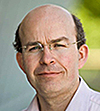 Tim Hubbard (King's College London)
Professor Tim Hubbard is Head of the Department of Medical & Molecular Genetics at King's College London and Director of Bioinformatics for King's Health Partners. He is also Head of Genome Analysis at Genomics England and Associate Director of the Health Data Research UK (HDR UK) London site.
Tim studied Biochemistry at University of Cambridge (1981-85) and completed a PhD in Protein Design at the Department of Crystallography, Birkbeck College, London (1985-88). Following a postdoctoral fellowship at the Protein Engineering Research Institute in Osaka under the EU scientific training program in Japan (1989-90) he returned to Cambridge becoming a Zeneca Fellow at the Medical Research Council Centre for Protein Engineering (1990-97). In 1997 he moved from structural biology to genomics, joining the Wellcome Trust Sanger Institute as Head of Human Genome Analysis where he was one of the organisers of the sequencing of the human genome. In 1999 he co-founded the Ensembl project to analysis, organise and provide access to the human genome and from 2007 led the GENCODE project to annotate the structure of all human genes. He became Head of Informatics in 2007. In 2013 he moved to London to become Head of Department at King's College London, part time seconded to Genomics England, the company set up by the Department of Health to execute the 100,000 genomes project.
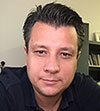 Emmanouil (Manolis) Dermitzakis (University of Geneva)
Emmanouil Dermitzakis, PhD
Professor of Genetics, University of Geneva
Director, Health 2030 Genome Center
Emmanouil (Manolis) Dermitzakis is currently a Professor of Genetics in the Department of Genetic Medicine and Development of the University of Geneva Medical School and Director of the Health2030 Genome Center. He is also a member of the executive board of the Institute of Genetics and Genomics in Geneva (iGE3) and a member of the Swiss Institute of Bioinformatics. He is also a member of the Executive Board of the Swiss Personalized Health Network. He obtained his B.Sc. in 1995 and M.Sc. in 1997 in Biology from the University of Crete (Greece) and his PhD in 2001 from the Pennsylvania State University in the USA, studying the evolutionary biology and population genetics of regulatory DNA in mammals and Drosophila. His post-doctoral work was at the University of Geneva Medical School, focusing on comparative genome analysis and the functional characterization of conserved non-genic elements. He, previously, was an Investigator and Senior Investigator at the Wellcome Trust Sanger Institute in Cambridge from 2004 to 2009. He was elected an EMBO member in 2014, he is the recipient of the 2017 Bodossakis science award and has also been named Highly Cited Researcher by ISI every year since 2014. He served as the president of the Executive Board of the World Hellenic Biomedical Association (2014-2015). His current research focuses on the genetics and molecular causes of human disease. He has served as an analysis co-chair in the ENCODE consortium and member of the analysis group of the Mouse Genome Sequencing Consortium and the International HapMap project and the 1000 genomes project and a co-chair in the GTEx project. He has served in the Board of Reviewing Editors of Science, eLIFE and PLoS Genetics and is currently Chief Editor of Frontiers in Genetics.
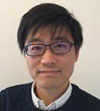
Ikuo Suzuki (The University of Tokyo)
Ikuo K. Suzuki PhD
2001-2005 Undergraduate course in Kyoto University, Japan (B.Sc)
2005-2010 Graduate course in The Graduate University for Advanced Studies, Japan (PhD)
2010-2012 Postdoctoral researcher in Tatsumi Hirata’s group at National Institute of Genetics, Japan
2012-2018 Postdoctoral researcher in Pierre Vanderhaeghen’s group at University of Brussels (ULB), VIB KU Leuven Center of brain and disease research (CBD) , Belgium
2019- Associate Professor in Department of Biological Sciences, Graduate School of Science, University of Tokyo, Japan
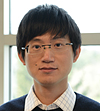 Sidi Chen (Yale University School of Medicine)
Sidi Chen joined the Yale Faculty in 2015 as an assistant professor in the Department of Genetics and Systems Biology Institute, also as a member of the Yale Cancer Center and the Yale Stem Cell Center. Chen earned a PhD in evolutionary genetics from The University of Chicago with an award-winning dissertation with Dr. Manyuan Long. After graduation he performed postdoctoral studies at MIT under the mentorship of Dr. Phil Sharp, and also the Broad Institute working with Dr. Feng Zhang. His research focuses on providing a global understanding of biological systems. Leveraging functional genomics and the emerging genome editing technologies and genome-wide in vivo screens, his work has identified and characterized young essential genes, illuminated the regulation of hypoxia and angiogenesis by microRNAs, and developed precision CRISPR-based in vivo models of cancer, and global mapping of functional drivers of cancer oncogenesis and metastasis. His laboratory currently works to develop and apply novel tools for next-generation cancer genetics, genomics and systems biology, and tackle problems in cancer initiation, progression, metastasis, immunity, and therapeutic responses. His group is also interested in developing innovative next generation immunooncology therapeutics. Dr. Chen was selected as a Damon Runyon Cancer Research Fellow in 2012 and won the Dale Frey Award for Breakthrough Scientists in 2015. He has also been recognized with a series of awards such as AACR NextGen Award for Transformative Cancer Research, TMKF Innovative/Translation Cancer Research Award, Exceptional Research Grant Award from the Breast Cancer Alliance, Young Investigator Awards from Melanoma Research Alliance, V Scholar, Bohmfalk Scholar, Ludwig Family Foundation St. Baldrick’s Foundation, and Clinic & Laboratory Integration Program (CLIP) from Cancer Research Institute. His lab also receives funding from National Institute of Health and Department of Defense.
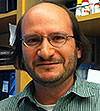 Michael C. Bassik (Stanford University)
Education:
2005 Ph. D, Biological and Biomedical Sciences
Harvard University Graduate School of Arts and Sciences Division of Medical Sciences
1996 B.S., Biochemistry and Molecular Biology, with Honors
University of Wisconsin-Madison
Madison, WI
Research and Professional Experience:
2015- Affiliate, Innovative Genomics Initiative
2014- Member, Stanford Cancer Institute
2013- Fellow, Stanford Institute for Chemical Biology
2013- Assistant Professor
Stanford University, Department of Genetics
2005-2013 Postdoctoral Fellow
University of California-San Francisco
Laboratory of Jonathan S. Weissman San Francisco, CA
Exploring the secretory pathway using mammalian genetic interaction maps, ultra-complex shRNA libraries, and ER trafficking toxins
1997-2005 Graduate Student
Harvard University Graduate School of Arts and Sciences Boston, MA
Division of Medical Sciences, Biological and Biomedical Sciences Ph.D. program Advisor: Stanley Korsmeyer
Thesis: “Regulation of ER Calcium Homeostasis and Apoptosis by Phosphorylation of BCL-2"
1996-1997 Research Technician
University of Wisconsin-Madison Laboratory of Jon Wolff
Enhancing DNA transport by covalent peptide modification
1995-1996 Undergraduate Research University of Wisconsin-Madison Laboratory of Jon Wolff
Mechanism of DNA transport into nuclei
1993 Summer Research Assistant
University of Nebraska Medical Center
Laboratory of S.K. Roy
Honors and Awards:
2014: NIH New Innovator Award
2012: Deloitte-QB3 Award for Innovation Finalist
2006: Leukemia and Lymphoma Society Career Development Postdoctoral Fellowship
2005: Harvard Medical School Nominee for Harold M. Weintraub Graduate Student Award
1999: Stauffer Pre-Doctoral Fellowship
1996: Undergraduate Senior Honors Thesis Research Award
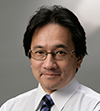 Osamu Nureki (The University of Tokyo)
1. Name Osamu Nureki
2. Sex Male
3. Date of Birth Oct. 22, 1965
4. Position Professor
5. Institution Department of Biological Sciences, Graduate School of Science, The University of Tokyo
5-a. Postal Address 7-3-1 Hongo, Bunkyo-ku, Tokyo 113-0033, Japan
5-b. Telephone Number +81-3-5841-4392
5-c. Fax Number +81-3-5841-8057
5-d. E-mail Address nureki@bs.s.u-tokyo.ac.jp
5-e. URL Address http://www.nurekilab.net/
6. Study Field / Current Study Theme
7. Research Interest
1. Structural biology of translational apparatus, RNA interference, and CRISPR-Cas
2. Structural biology of membrane proteins (channels, transporters, and GPCRs).
8. Educational Backgrounds (after high school)
1984-88 Undergraduate of Faculty of Science, the University of Tokyo
1988-93 Master and PhD student of Department of Biophysics and Biochemistry, Graduate School of Science, the University of Tokyo
1993.3 Graduation from Department of Biophysics and Biochemistry, Graduate School of Science, the University of Tokyo (Doctor of Science)
9. Professional Backgrounds
April, 1993 Postdoctoral Fellow, Protein Engineering Research Institute (PERI)
April, 1994 Special Researcher at Crystallography Laboratory in RIKEN
April, 1995 Assistant Professor, Department of Biophysics and Biochemistry,
Graduate School of Science, The University of Tokyo
April, 2002 Associate Professor at Department of Biophysics and Biochemistry, Graduate School of Science, The University of Tokyo
May, 2003 Professor, Department of Biological Information, Graduate School of Biosciences and Biotechnology, Tokyo Institute of Technology
April, 2008 Professor, Department of Basic Medical Sciences, The Institute of Medical Science, The University of Tokyo
April, 2010 Professor, Department of Biophysics and Biochemistry, Graduate School of Science, The University of Tokyo
April, 2014 Professor, Department of Biological Sciences, Graduate School of Science, The University of Tokyo
10. Awards
1. Promoting Award in 2000 by the Crystallographic Society of Japan
2. Prizes for Science and Technology (Research Category), The Commendation for Science and Technology in 2007 by the Minister of Education, Culture, Sports, Science and Technology
3. JSPS Prize in 2008, Japan Society for the Promotion of Science
4. Mochida Memorial Research Prize in 2009, Mochida Memorial Medical and Pharmaceutical Foundation
5. Kihara Memorial Research Prize in 2010, Yokohama Life Science Foundation
6. Inoue Prize for Science in 2011, Inoue Foundation for Science
7. Research Award of The Crystallographic Society of Japan in 2011
8. Uehara Prize of Uehara Memorial Foundation in 2014
9. Takeda Medical Prize of Takeda Science Foundation in 2014
10. Medal with Purple Ribbon from Japanese Government in 2018
 Thomas Hudson (AbbVie Inc.)
Thomas Hudson, M.D., vice president for discovery at AbbVie, leads a global team of scientists who work across all therapeutic areas to identify potential new treatments for a variety of devastating diseases. During his initial two years at AbbVie from 2016 to 2018, he oversaw oncology discovery and early development. A Canadian genome scientist, Dr. Hudson was a pioneer in mapping the human genome and is internationally renowned for his work in genomics, human genome variation and genetic diseases. He played a leading role in the generation of physical maps of the human and mouse genomes and in the identification of tumor mutations responsible for multiple forms of cancer affecting patients throughout the world. Prior to joining AbbVie, Dr. Hudson was the President and Scientific Director of the Ontario Institute for Cancer Research where he led the institute’s work in translational research for the prevention, detection, diagnosis and treatment of cancer. He has held leadership roles as the Founder and Director of the McGill University and Genome Quebec Innovation Centre and Assistant Director of the Whitehead/MIT Center for Genome Research. Dr. Hudson is currently a member of the Executive Committee of the Partnership for Accelerating Cancer Therapies (PACT) and the Board of Director of the California Life Sciences Association (CLSA). He previously served as a scientific advisor to many public organizations, including Genome England, the National Human Genome Research Institute (NIH) and the STARR Cancer Foundation. Dr. Hudson has co-authored more than 300 peer-reviewed scientific publications.
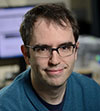 Winston Timp (Johns Hopkins University)
Winston Timp is an assistant professor in Biomedical Engineering at Johns Hopkins University. He earned bachelor degrees in Biochemistry, Chemistry, Physics and Electrical Engineering from the University of Illinois at Urbana. He then earned his a masters and PhD in Electrical Engineering from MIT, working at the Whitehead Institute in Paul Matsudaira’s lab, focusing his thesis work on the study of cellular communication in a 3D microenvironment. After receiving his doctorate, he trained as a postdoc at Johns Hopkins in the labs of Andrew Feinberg and Andre Levchenko, studying the epigenetics of cancer.
His lab’s focus is in the development and application of sequencing technologies to gain a deeper understanding of biology and a more accurate set of clinical tools for human disease. Timp’s research integrates the principles of biophysics, molecular biology, and computational biology to create new tools for exploring the epigenome and genome of various lifeforms, ranging in size from the flu virus to hummingbirds to California redwoods. Based on the knowledge gained from these studies, Timp and his lab apply their toolsets to clinical samples for the diagnosis, surveillance and treatment of human disease. Recent projects in Timp’s lab include new sequencing methods to diagnose infectious disease, new methods to characterize RNA biology, and examining single molecule epigenetics of cancer.
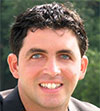 Manolis Kellis (Broad Institute of MIT and Harvard)
Manolis Kellis is a Professor of Computer Science at MIT, an Institute Member of the Broad Institute of MIT and Harvard, a member of the Computer Science and Artificial Intelligence Lab at MIT, and head of the MIT Computational Biology Group (compbio.mit.edu). His research spans an unusually broad spectrum of areas, including disease genetics, epigenomics, gene circuitry, non-coding RNAs, comparative genomics, and phylogenomics. He has helped direct several large-scale genomics projects, including the Roadmap Epigenomics project, the ENCODE project, the Roadmap Epigenomics Project, the Genotype Tissue-Expression (GTEx) project, and comparative genomics projects in mammals, flies, and yeast. He received the US Presidential Early Career Award in Science and Engineering (PECASE) by US President Barack Obama, the NSF CAREER award, the Alfred P. Sloan Fellowship, the Technology Review TR35 recogni-tion, the AIT Niki Award, and the Sprowls award for the best Ph.D. thesis in computer science at MIT. He has authored over 190 journal publications, which have been cited more than 70,000 times. He lived in Greece and France before moving to the US, and he studied and conducted research at MIT, the Xerox Palo Alto Research Center, and the Cold Spring Harbor Lab. For more info, see: compbio.mit.edu and kel-lislab.com
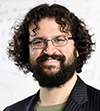 Erez Lieberman Aiden (Baylor College of Medicine)
I am a mathematician and a molecular biologist. My laboratory’s primary emphasis is on exploring the three dimensional structure of the human genome. Much of the lab’s work centers on the experimental interrogation of genome folding and structure via molecular biology and microscopy. I conceived of the Hi-C protocol, built the team that created the first 3D map of the human genome, and led all aspects of the resulting data analysis. Hi-C couples DNA proximity ligation to sequencing in order to comprehensively map long-range genomic interactions. My lab has since developed in situ Hi-C, in which proximity ligation is performed in intact nuclei. We used this method to publish the first kilobase- resolution contact maps of the human genome and the first reliable genome-wide annotation of chromatin loops. This work led to our proposal that loops in the human genome form by a process of extrusion. We also published the first reliable methods for assembling Human Genome Project quality de novo genome assemblies created only from short Illumina reads, enabling the generation of mammalian genomes from scratch for under $1,000.
In addition, my lab has created extremely powerful computational and visualization tools for enabling the interpretation of such datasets, including reliable loop mapping and de novo genome assembly. Our tools are publicly available and have been used at over 1000 institutions worldwide. My laboratory occupies a fully renovated, 3300 square foot facility with extensive wet lab and dry lab space at the Baylor College of Medicine.
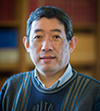 Takashi Nagano (Osaka University)
Takashi Nagano runs Laboratory for Nuclear Dynamics at the Institute for Protein Research, Osaka University, Japan. He started his professional career as an orthopaedic surgeon after graduating from Osaka University Medical School, but his interest in basic biology urged him to switch job after completing PhD. He was engaged in the research in developmental neurobiology as well as teaching medical students for 9 years in Japan, before moving to Dr Peter Fraser's lab at The Babraham Institute in Cambridge, UK.
During his 15 years at Babraham, he started to focus on the relationship between spatial organization within the nucleus and epigenetic regulation, which continues up to the present, and has achieved new insights by modified or new methodologies.
For example, he modified a method to label chromatin in a "RNA of interest"-dependent manner (RNA FISH TRAP), analyzed the interaction between chromatin and a long non-coding RNA Air, and showed how long non-coding RNA works to repress target genes (Nagano et al., Science, 2008).
He also invented "in-nucleus" Hi-C ligation by modifying normal Hi-C method, which allowed him to get the Hi-C data from single cells for the first time (Nagano et al., Nature, 2013). He further achieved better data quality with higher throughput for single-cell Hi-C, which contributed to discover the dynamic reorganization in chromosome structure along cell cycle progression (Nagano et al., Nature, 2017). He is now trying to make the most of the methodology to analyze complicated dynamics during embryonic development and/or cell differentiation.
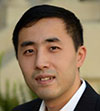 Long Cai (California Institute of Technology)
Personal Statement
My lab solved a major challenge in single cell in situ analysis by showing that a large number of mRNAs can be profiled in single cells in their native environments in tissues. We accomplished this by developing a sequential barcoding method that is akin to sequencing RNAs in cells with sequential fluorescence in situ hybridization (seqFISH) (Lubeck et al, Nat Meth 2014). The multiplexing capacity of this method scales exponentially, allowing the entire transcriptome of over 10,000 genes to be barcoded (Eng et al, 2017 and Shah et al, Cell 2018) . Overcoming the bottleneck of coding for different mRNAs in cells opens the door for answering a large range of problem in spatially heterogeneous tissues that are inaccessible with existing methods. We have been translating this method to solve fundamental questions in developmental biology and neuroscience.
Building upon seqFISH, we recently developed a method called Memory through Engineered Mutagenesis with Optical In situ Readout (MEMOIR). This method allows us to record cellular events into the genome of cells using CRISPR based genome editing tools, and readout of this information in situ using seqFISH. We have shown experimentally that MEMOIR can track lineage trees three generations deep with single cell information. In addition, we showed theoretically that intensity, duration and timing of many molecular event histories can be recorded and reconstructed accurately using MEMOIR. MEMOIR has the potential to be a powerful tool in understanding cell identity and fate decisions are fundamental to a wide range of questions in neuroscience, developmental biology and human diseases.
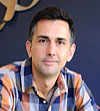 Alex Swarbrick (Garvan Institute of Medical Research)
Alex is an Associate Professor of Medicine at UNSW Sydney, Laboratory Head in the Garvan Institute of Medical Research and co-head of the Breast Translational Oncology Program in the Kinghorn Cancer Center, Sydney. Alex completed his PhD at UNSW, followed by a postdoctoral fellowship with Nobel Laureate J. Michael Bishop at UCSF. Alex uses cell and molecular biology, animal models of disease and single cell genomics to find new treatment strategies for breast and prostate cancer.
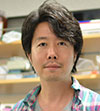 Nozomu Yachie (The University of Tokyo)
Dr. Yachie is currently an Associate Professor at the University of Tokyo and a Project Associate Professor at Keio University. His team is developing technologies to measure dynamics of molecules, cells and cellular developments using DNA barcodes, genome editing and massively parallel sequencing. Dr. Yachie received Ph.D. degree at Keio University in 2009 under Dr. Masaru Tomita. He then undertook a postdoctoral fellowship at Dr. Fritz Roth's lab at Harvard Medical School and University of Toronto, where he developed a high-throughput protein interaction technology BFG-Y2H. Dr. Yachie has been appointed at the University of Tokyo and Keio University starting 2014. He is also a recipient of JSPS fellowships DC1 (Selection Year 2006), PD (slid from DC1) and Research Abroad (Selection Year 2009) awarded by Japan Society for the Promotion of Science. He also received a Banting Fellowship awarded by the Natural Sciences and Engineering Research Council of Canada in 2012 and a PRESTO Researchership awarded by Japan Science and Technology Agency in 2014.
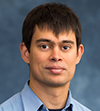 Gonçalo Abecasis (Regeneron Genetics Center)
Gonçalo Abecasis, Ph.D., serves as the Vice President and Head of Analytical Genomics and Data Sciences at the Regeneron Genetics Center. In this role, Dr. Abecasis oversees statistical genetics and quantitative data sciences, driving novel genomic discovery at the RGC. He and his team conduct discovery research in support of new target discovery, pharmacogenomics, and translational follow up that cuts across all therapeutic areas. Dr. Abecasis and the RGC are leading innovative data science on some of the largest genomics datasets, including the UK Biobank and Regeneron-Geisinger DiscovEHR study, and developing cutting edge applications and tools to facilitate large scale analysis and mining of discovery results.
Before joining the RGC, Dr. Abecasis was a member of the RGC Scientific Advisory Board since its inception in 2015 and was instrumental in providing scientific and strategic guidance. He previously was the Director of the University’s Genomics Initiative and the Felix Moore Collegiate Professor of Biostatistics at the University of Michigan. He led a group of scientists developing statistical methods, computational algorithms and software that facilitate quick and accurate analysis of genetic studies of human disease. He has made key contributions to many important genomics and data science initiatives including TOPMed, Genes for Good, and other projects involving some of the largest genomic datasets and development of some of the most widely used methods and tools. His studies, and those of other scientists using his tools, are enabling a better understanding of human genetic variation and its role in disease biology.
In 2014, Dr. Abecasis received the Curt Stern Award from the American Society of Human Genetics for his contributions to the analysis and understanding of complex human traits and, in 2013, he won the Overton Prize from the International Society for Computational Biology for the tools and methods he developed for the analysis of increasingly large datasets. Dr. Abecasis has co-authored more than 250 scientific papers and has appeared on the Thompson Reuters listing of the world’s most cited scientists in 2009, 2011 and 2012. Dr. Abecasis received his undergraduate degree in genetics from the University of Leeds and his Ph.D. in Human Genetics from the University of Oxford.
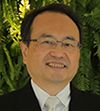 Shinichi Morishita (The University of Tokyo)
Shinichi Morishita received the BS, MS, and PhD degree from the Department of Information Science, Graduate School of Science, The University of Tokyo. He is a professor in the Department of Computational Biology and Medical Sciences, Graduate School of Frontier Sciences, The University of Tokyo. He published more than 100 papers on logic programming, database systems, data mining, optimization algorithms, genome assembly, epigenomics, genome evolution, chromatin structure, RNAi, transcriptome, phenome, and personal genomics.
|
|
